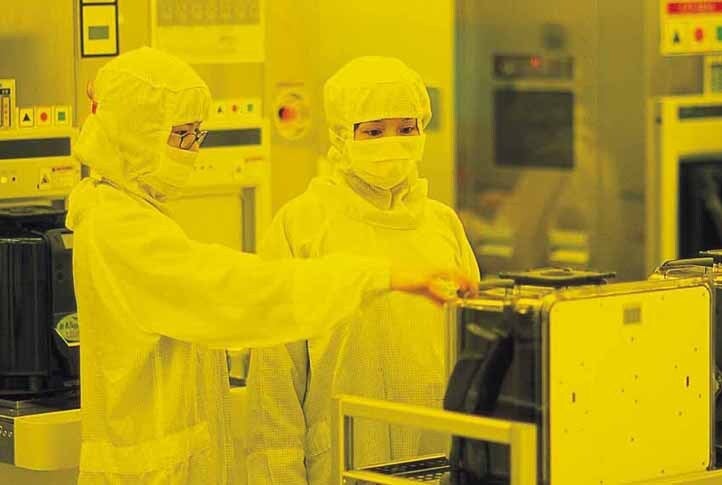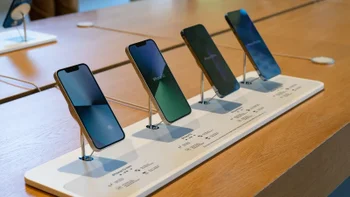U.S. demands data from Apple chipmaker TSMC

The U.S. Commerce Department, interested in figuring out why the world is in the middle of a global chip shortage, has requested information from Taiwan-based semiconductor companies including TSMC, the largest independent foundry on the planet. The latter is the firm that builds chipsets for top tech names like Apple, Nvidia, AMD, and MediaTek.
U.S. Commerce Department seeks information about the chip shortage from TSMC and other foundries
Sandra Oudkirk, director of the American Institute in Taiwan, told reporters today that U.S. officials have devised "excellent safeguards" to protect proprietary information given by the semiconductor firms to the U.S. officials. Oudkirk said, "The Commerce Department’s request for information is designed to better understand the semiconductor supply chain," and to allow the Commerce Department to "improve or alleviate the disruptions to the supply chain."

TSMC employees inside a 12-inch wafer fab
The U.S. Commerce Department's request for information last month ran into some resistance from Taiwan due to fears that the data being collected could leak. While the semiconductor firms being questioned by the U.S. are not being forced to participate, Commerce Secretary Gina Raimondo has threatened the companies involved by mentioning that the U.S. might turn to the Defense Production Act to force responses from firms that haven't turned over data by November 8th.
The Defense Production Act is used to force U.S. companies to manufacture products needed, but are in short supply during a war. It isn't clear how the DPA could be used to force Taiwan chip companies to turn over the requested information. The DPA can also be used to block foreign shipments of a product from entering the U.S. But this would hardly seem like the solution to fix a chip shortage.
In May 2020, the U.S. Commerce Department invoked an export rule change to prevent foundries using American technology to produce chips from shipping cutting-edge semiconductors to Huawei without a license. Chinese officials are concerned that information received by the U.S. from TSMC and other foundries could provide data that might lead the U.S. to issue sanctions against the country.
The amount of information that the U.S. will receive from the Taiwan-based firms is likely to be minimal and TSMC has said that it will not reveal any sensitive customer information. The American Institute in Taiwan made a "courtesy call" to United Microelectronics Corp. on October 10th. But it appears that TSMC has yet to turn over the requested data and November 8th will soon be here.
Automakers have been accused of starting the global chip shortage
The chip shortage has taken place due to the pandemic. Automakers, surprised by the demand for their vehicles during the pandemic, were forced to order more chips than they originally purchased. As a result, these manufacturers created heavy demand for semiconductors by ordering as many as they could get their hands on. Combined with a shortage of workers due to the pandemic, the global chip shortage was created.
Not all chip buyers have been impacted equally. For example, TSMC made sure that its best customers, including Apple, were not as affected as other customers were. Still, Apple noted during yesterday's fiscal fourth-quarter earnings call that the supply-chain shortage, which includes the aforementioned issues in the chip industry, cost the company $6 billion in revenue during the quarter.
The chips that were affected the most by the shortage were older "legacy nodes" or older chipsets used to power older iPhone models. It would appear that Apple didn't have as much trouble procuring its newer, most advanced components. With the supply-chain issues, visibility isn't so clear which forced Apple to refrain from making a forecast for its fiscal first quarter of 2022.
Despite all of these interruptions on the supply chain, Cook said that Apple expects to report "solid year-over-year revenue growth" for the current quarter.
Follow us on Google News













Things that are NOT allowed:
To help keep our community safe and free from spam, we apply temporary limits to newly created accounts: